Turn any article into a podcast. Upgrade now to start listening.
Premium Members can share articles with friends & family to bypass the paywall.
You’re reading The Morning Dispatch, our flagship daily newsletter explaining all the news you need to know today in fewer than 10 minutes. To unlock the full version, become a Dispatch member today.
We’re working on improving our podcast and video content—and we’d like your feedback. Please take five minutes and fill out this short survey to help us upgrade our multimedia offerings and shape what we create next.
Happy Friday! Didn’t get enough of The Dispatch this week? Watch Michael Warren discussing the latest out of the Heritage Foundation on CBS News, and catch Sarah Isgur on ABC’s This Week on Sunday.
Quick Hits: Today’s Top Stories
- Hamas on Thursday returned the body of Israeli hostage Meny Godard—a 73-year-old Kibbutz Be’eri resident murdered along with his wife, Ayelet, during the October 7, 2023, terrorist massacre. Israeli troops had, in March, found partial remains of Godard in the southern Gaza city of Rafah. Also on Thursday, local Palestinian villagers in the West Bank said that Israeli settlers torched a mosque in the town of Deir Istiya, and spray-painted hateful messages on the side of the building. Earlier this week, masked Israeli settlers burned and destroyed property at a Palestinian dairy farm in the West Bank. On Wednesday, Secretary of State Marco Rubio said there’s “some concern about events in the West Bank spilling over” and destabilizing the Israel-Hamas deal, but added, “We don’t expect it to.”
- Defense Department officials told news outlets on Thursday that the U.S. carried out a strike on Monday on a suspected cartel-affiliated, drug-trafficking boat in the Caribbean. Officials said the strike killed four on board and left no survivors. It was the Trump administration’s 20th strike on an alleged drug boat. News organizations also reported on Thursday that senior military officials had briefed Trump a day earlier on potential operations in Venezuela, but that the president had made no final decisions. Defense Secretary Pete Hegseth and Chairman of the Joint Chiefs of Staff Dan Caine were also present.
- Legal advocacy groups, representing 17 transgender military service members, sued the Trump administration for rescinding their approved early retirement benefits. All the plaintiffs served between 15 and 18 years in the military and were initially approved for early retirement, after the Defense Department barred service members with a “current diagnosis or history of, or exhibit symptoms consistent with, gender dysphoria,” in keeping with a January executive order. However, in August, the Air Force reversed its decision to grant them early retirement, and informed the servicemembers that they would be separated from the military without retirement benefits.
- The Justice Department sued California Democrats Gov. Gavin Newsom and Secretary of State Shirley Weber on Thursday, seeking to block a congressional redistricting map opposed by Republicans. California voters approved the proposal earlier this month in a ballot referendum to bypass the state’s independent commission overseeing redistricting maps. However, the DOJ argues the new map is illegal and violates the 14th Amendment’s equal protection clause. “Substantial evidence, including that in the legislative record and public statements, indicate that the legislature created a new map in which Latino demographics and racial considerations predominated,” stated a DOJ press release on Thursday. Democrats in the state launched the redistricting effort after Texas Republicans presented a congressional redistricting plan that later passed. Missouri, North Carolina, and Ohio have also passed redistricting efforts this year.
- The New York Times reported on Thursday that the Trump administration is considering exemptions to the president’s “reciprocal tariffs,” including for certain beef and citrus imports, in an effort to lower food prices. The unnamed sources told the Times that Trump has yet to finalize which tariffs, if any, will be lifted. Also on Thursday, the Trump administration said it had reached trade frameworks with Argentina, Ecuador, El Salvador, and Guatemala, which—if finalized and signed—would remove certain tariffs, including on some food products.
High and Dry
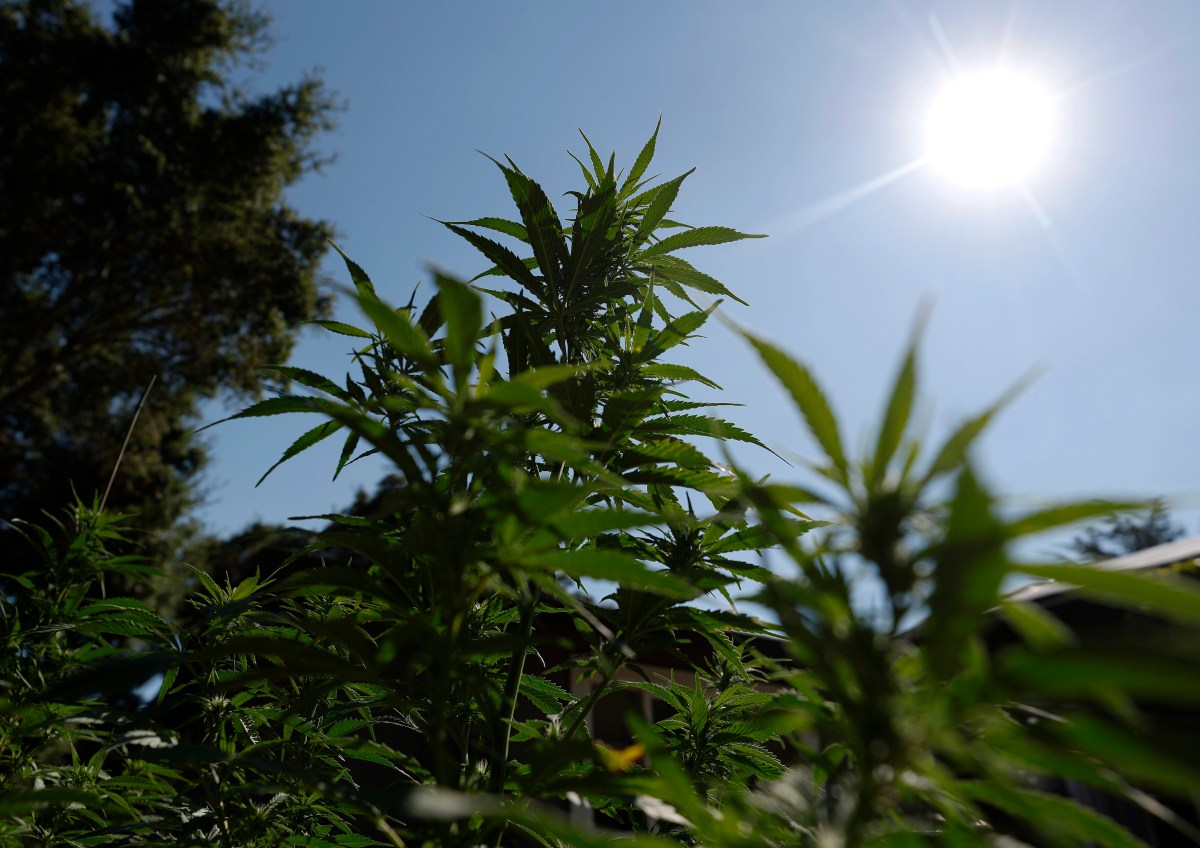
Big bills, ostensibly introduced to do one thing, often include provisions snuck in to achieve other ends. And so, as he went through the funding bill that would eventually end the government shutdown, Kentucky Sen. Rand Paul was alarmed to learn that, buried within, was language to change the definition of hemp, endangering the legality of a more than $28 billion industry that supports approximately 328,000 American jobs.
Paul proposed an amendment to strike the updated definition, but the Senate voted 76-24 against his change, with 22 Democratic senators and Republican Sen. Ted Cruz of Texas aligning with him. Later that night, the Senate moved to invoke cloture and voted to pass the bill, sending it to the House, and from there, to the president’s desk.
And if nothing changes, on November 12, 2026, most of the currently legal THC product market will be classified as Schedule I narcotics.
Much of the current market exists because of a legal loophole in the 2018 farm bill, which sought to cultivate a domestic hemp industry for non-intoxicating products ranging from textiles and paper to animal feed, but unintentionally opened up a largely unregulated market for intoxicating cannabis products.
You are receiving the free, truncated version of The Morning Dispatch. To read the full newsletter—and unlock all of our stories, podcasts, and community benefits—join The Dispatch as a paying member.
“Before 2018, there was not a very big hemp industry in the United States,” Jonathan Caulkins, a professor of operations research and public policy at Carnegie Mellon University’s Heinz College, told TMD. The existing regulatory structure made it difficult for farmers to grow hemp legally, so most hemp used in non-intoxicating products had to be imported.
“The ambition with the [2018] farm bill was, ‘Hey, we’ve got fantastic farmers. Let’s create a way for us farmers to grow the seed and the fiber and the other non-intoxicating uses of the plant,’” Caulkins said.
The bill attempted to create a legal distinction between: 1) Hemp cultivation for industrial purposes and cannabidiol (CBD) products—a non-psychoactive chemical present in cannabis, and 2) Intoxicating cannabis, scheduled by the Drug Enforcement Administration (DEA) as a Schedule I controlled substance, which the DEA defines as “drugs with no currently accepted medical use and a high potential for abuse.”
Congressional members saw an opportunity to give “farmers a new cash crop,” Robert Mikos, an expert in drug law and policy at Vanderbilt Law School, told TMD. “I think that they really anticipated those two uses,” he said. “To some extent, it was industrial hemp—kind of textiles and so on—but CBD, I think, was the big draw.”
Specifically, the bill defined hemp as Cannabis sativa L: a species of the plant that has, at most, a 0.3 percent concentration of delta-9 THC, marijuana’s primary intoxicating ingredient, on a dry-weight basis. There are other compounds (or cannabinoids) present in the plant, such as delta-8 and delta-10 THC, which can also induce psychoactive effects, but they are present at much lower levels than delta-9 THC, so Congress wasn’t concerned about them.
But once the 2018 bill passed, innovators realized they could utilize the other compounds that lawmakers had overlooked.
“It turns out that it’s relatively easy to turn one cannabinoid into a different cannabinoid,” Caulkins said. “You can turn the CBD into delta-9 [THC], which then is illegal under the federal farm bill, but that’s kind of at the end of the production chain,” he noted, adding that “it’s easy to hide the labs that were doing that.”
“But even more clever,” Caulkins said, “you can turn the CBD into delta-8 THC” or other cannabinoids with delta-9-THC-like psychoactive effects. Under the federal definition, it would be classified as legal hemp despite its intoxicating properties.
New lines of THC products have allowed consumers numerous ways to get high with relative ease. In many states, people can now pick up gummies, syrups, popsicles, popcorn, vaporizers, and even protein powder. They’re available in gas stations, convenience stores, or online—and despite being a psychoactive product, derived from the cannabis plant, they’re perfectly legal.
Among the most popular products are THC beverages, with Whitney Economics—an economic consulting firm specializing in hemp industry research—predicting in a September report that legal sales totaled between $1 and $1.3 billion in 2024. The report says there are between 500 and 750 THC beverage brands, and less than half of them sell through marijuana dispensary stores.
And this wasn’t the only loophole in the farm bill. By measuring THC content through dry-weight concentration, you could make potent, highly intoxicating edible and beverage products, which were still legal. Jeffrey Singer, a Cato Institute senior fellow in health policy studies, noted in an article that the weight-based loophole is “all about math, not plant chemistry.” As he wrote, “A five-gram gummy can legally contain up to 15 milligrams of THC and still qualify as hemp because that’s only 0.3 percent of its weight. The same logic applies to drinks: a 12-ounce seltzer weighing about 340 grams could contain around 10 mg of THC and remain within the limit.”
These products are now widespread, but because they exist through loopholes, they skirt regulations, taxes, licensing requirements, and even quality control measures. Alex Brill, a senior fellow at the American Enterprise Institute, told TMD that the hemp market is functionally unregulated, “and I think there’s some legitimate safety concerns around some of those products.”
“One can argue about whether [hemp-derived THC products] should be regulated strictly or loosely,” he added, “but either way, these types of products should be subject to some oversight as a safety matter, and should be regulated in a similar fashion if they have similar risk profiles.”
Even the famously libertarian Sen. Paul, who pushed to keep the loophole as is, acknowledged to reporters on Tuesday that “there is a problem” in terms of a lack of federal protections. “The hemp industry understands that the gas station stuff that’s really high in THC and sold to children needs to be off the market,” he said, noting that individual states can also provide a regulatory framework independent of the federal government, such as age restrictions, maximum THC levels, and labeling requirements.
Paul added, “But instead of fixing that problem and leaving the legitimate hemp industry, [GOP Sen. Mitch McConnell is] going to destroy the entire industry, including the plants.”
Both McConnell and Paul supported the 2018 farm bill definition, but now find themselves on opposing sides. Earlier this year, McConnell criticized the “unintended consequence that has allowed for intoxicating hemp-derived synthetic products to be made and sold.” More recently, on the Senate floor Monday, McConnell emphasized the need for “protecting our children” from psychoactive hemp products.
The updated language provides a narrower definition of hemp, while also creating separate legal categories for industrial hemp and hemp-derived cannabinoid products. For example, the THC concentration cap will be measured by the total content of all THC cannabinoids, not just delta-9, and all legal categories of hemp exclude any cannabinoids “synthesized or manufactured outside the plant.” To counter the edibles and beverages loophole, the new law set a 0.4 mg total THC limit for every container.
Paul argued that these new rules, which he attributed to McConnell, would mean the end of both intoxicating and non-intoxicating hemp companies. “The language that Sen. McConnell has put into the bill basically will kill the hemp industry nationwide,” Paul told reporters on Tuesday. “He’s changed the definition of the plant, so every hemp plant in America will have to be destroyed.”
The changed federal hemp rules won’t take effect for a year, but Beau Whitney—founder of Whitney Economics and the chief economist for the National Industrial Hemp Council and the National Cannabis Industry Association—said that states may look to ban these products sooner now that Congress has acted. “The impact is not, in my mind, going to occur in a year,” he told TMD. “It’s going to have an immediate effect. … This is going to start impacting businesses very, very, very quickly.”
According to Chris Lindsey, the vice president of policy and state advocacy at the American Trade Association of Cannabis and Hemp, the changes will not curb domestic production of non-intoxicating hemp products. “The bill clearly distinguishes between intoxicating and non-intoxicating products, synthetic and natural products, and industrial and consumer products,” he said on November 9. “These distinctions create regulatory lanes for hemp-derived products and address perceived loopholes.”
But the market for intoxicating products is now vastly larger than the industrial hemp sector. Per a November news release from Whitney Economics, only 27 percent, or $7.67 billion, of that total market value is in non-intoxicating THC production, such as industrial hemp.
What advice is Whitney giving U.S.-based hemp companies? “I’m, like, telling them, look to other countries, because there’s no opportunities now for hemp in the U.S.”
Today’s Must-Read
The Heritage Foundation, once the gold standard of conservative think tanks, has found itself repeatedly entangled with Tucker Carlson—and digging itself deeper and deeper for it. When former Heritage president Kay Coles James wrote an op-ed calling racism a “fatal wound” on America after George Floyd’s death, Carlson went on air urging his viewers to stop donating to Heritage. She was gone within a year. Her successor, Kevin Roberts, took the opposite approach: embracing Carlson so closely that it’s now threatening his own leadership. Dispatch senior editor Michael Warren traces how one of conservatism’s pillar institutions has abandoned its founding principles of limited government and American global leadership in favor of populist nationalism—with Carlson’s shadow looming over every turn.
Toeing the Company Line
The Epstein Veto
A MAGA crucible.
Rethinking the Role of the Strategic Petroleum Reserve
The U.S. should leverage its energy dominance to use the reserve strategically.
The Case for American Power, With One Exception
Shadi Hamid’s tribute to American democracy turns into an uneven indictment of the U.S.-Israel alliance.
A Few Democrats Show They Can Count
Realism and the trouble with minority power.
‘We Cannot Just Play Defense’
Elissa Slotkin says the Democratic Party needs new leaders and a plan. The Michigan senator is volunteering herself for both.
In Other News
Today in America:
- Democratic Sen. John Fetterman of Pennsylvania fell while on a walk and was transported to the hospital out of caution, where it was determined that he had suffered a “ventricular fibrillation flare-up,” according to his office. Fetterman sustained minor injuries from the fall.
- Democratic Seattle Mayor Bruce Harrell conceded the mayoral race to democratic socialist candidate Katie Wilson. Mail-in voting meant the state took more than a week to tabulate results.
- The Trump administration said it would open the 23-million-acre, federally owned National Petroleum Reserve in Alaska to oil and gas drilling, reversing a Biden-era ban that restricted development in half of the area.
- Rescuers in West Virginia retrieved the body of Steve Lipscomb, a coal miner trapped underground this weekend by flooding. Authorities said he was working to help fellow miners escape before becoming trapped himself.
- Secretary of State Marco Rubio issued foreign terrorist designations for four groups based in Germany, Greece, and Italy, which he claimed “ascribe to revolutionary anarchist or Marxist ideologies” and use them to justify and incite violence.
Around the World:
- The African Union’s top health agency warned that about 300,000 cholera cases were recorded this year, killing more than 7,000 people, the continent’s worst outbreak in a quarter-century.
- Syrian military Brig. Gen. Khaled al-Halabi, who served under former Syrian leader Bashar al-Assad’s regime, was indicted in Austria on torture charges.
- Canadian Security Intelligence Service head Dan Rogers claimed the agency thwarted several potentially lethal plots by Iran this year.
- The Rapid Support Forces—the paramilitary group fighting the Sudanese Armed Forces in the country’s ongoing civil war—is reorienting military resources eastward, a week after accepting a U.S.-backed ceasefire proposal that has yet to take hold on the ground.
- Early this morning, Ukrainian drones attacked the Russian Black Sea port city of Novorossiysk, and Russia launched a massive drone and missile attack on Kyiv, killing four people.
On the Money:
- New data from the U.S. Energy Information Administration showed that crude oil inventories rose by 6.4 million barrels last week, exceeding industry expectations.
- Verizon is reportedly planning to fire about 15,000 employees, its largest-ever round of layoffs. The company will also transition about 200 stores into independently owned franchises.
- The European Commission is investigating Google over concerns that it unfairly demotes some news results in violation of the EU’s Digital Markets Act.
- Blue Origin, the Jeff Bezos-founded space company, launched its 321-ft-long New Glenn spaceship. The rocket later successfully deployed two NASA orbiters intended to reach Mars.
- French gaming company Ubisoft delayed the publication of its first-half financial results, the day they were due to be released, and requested for trading in its shares and bonds to be halted.
Worth Your Time:
- Matthew Continetti explores how Democratic Senate Minority Leader Chuck Schumer is growing increasingly unpopular, even within the Democratic Party. (Wall Street Journal)
- Dan Gardner argues Canada ought to “dream big and take risks.” (The Walrus)
- Aaron Davis covers the FBI search for the January 6 pipe bomber. (Washington Post)
- Roula Khalaf interviews the outgoing head of MI6. (Financial Times)
- Katie Deighton reports on the typeface now being used everywhere. (Wall Street Journal)
- Out today: The Running Man and Now You See Me: Now You Don’t in cinemas, Malice on Amazon Prime, Call of Duty: Black Ops 7 and Anno 117: Pax Romana on Steam and consoles, and new music from The Neighbourhood, Orville Peck, and Kelsea Ballerini, everywhere good music is found.
Presented Without Comment
New York Times: How a 17-Year-Old Girl Became Enmeshed in the Matt Gaetz Scandal
She was 17 and a high school junior in Florida. She was working at McDonald’s. And she was living in and out of a homeless shelter.
Hoping to save up to buy braces to fix her teeth, she falsely advertised herself in 2017 as 18 years old on a website that matches men looking for “companionship” with young women looking to make money.
What followed would set off a chain of events that would have a dramatic impact on her life and help upend the political career of one of the men she would encounter, Representative Matt Gaetz, the Florida Republican.
…
For having sex with him twice, the girl was paid $400, according to testimony she gave to the Ethics Committee.
Also Presented Without Comment
ProPublica: Firm Tied to Kristi Noem Secretly Got Money From $220 Million DHS Ad Contracts
Also Also Presented Without Comment
NBC: Academy Nudges Voters To Actually Watch All the Oscar Contenders This Year
Let Us Know
Have any thoughts or questions about today’s newsletter? Drop us a note in the comments or by emailing us at tmd.questions@thedispatch.com. We read every submission, and your message could be featured in an upcoming “Behind the Scenes” segment.
Have any thoughts or questions about today’s newsletter? Become a member to unlock commenting privileges and access to a members-only email address. We read every submission, and answer questions in the following edition of TMD.

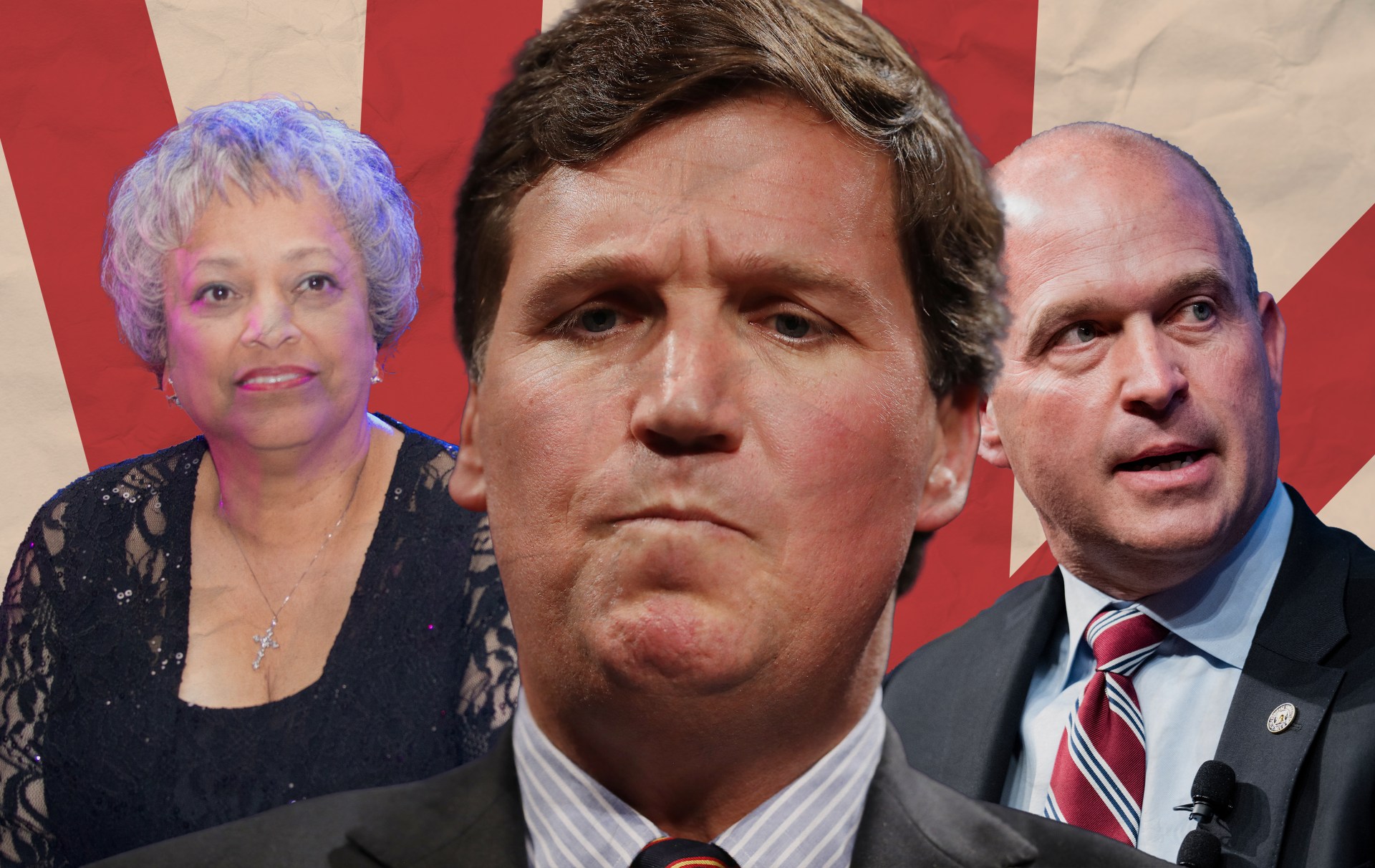
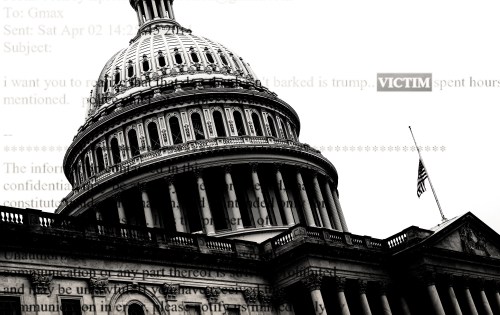


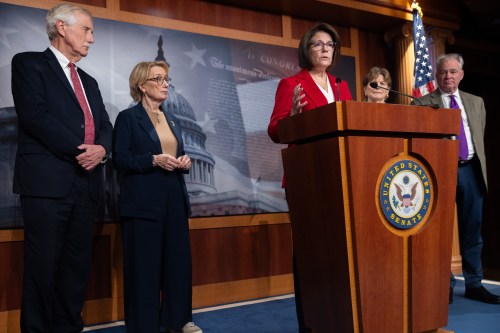




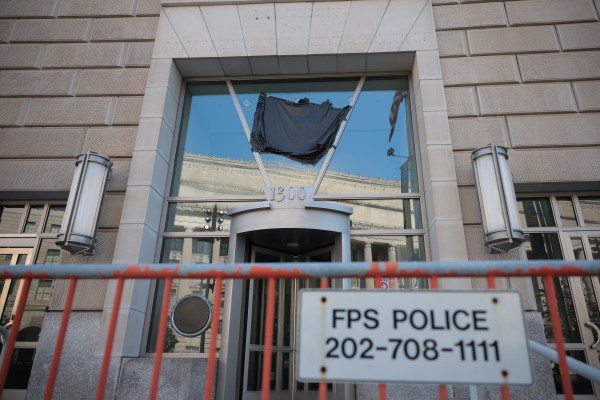


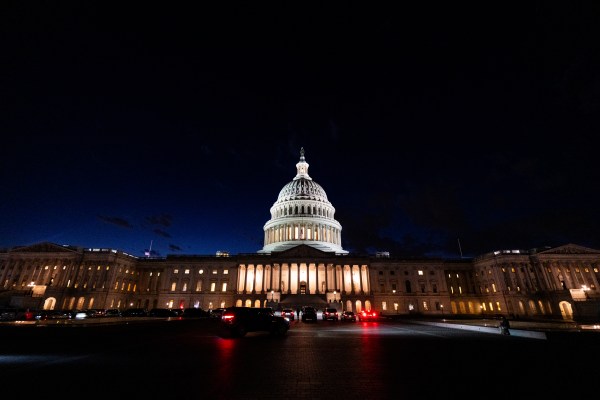
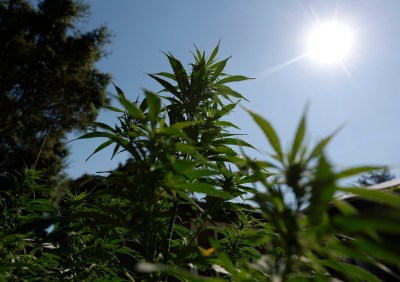
Please note that we at The Dispatch hold ourselves, our work, and our commenters to a higher standard than other places on the internet. We welcome comments that foster genuine debate or discussion—including comments critical of us or our work—but responses that include ad hominem attacks on fellow Dispatch members or are intended to stoke fear and anger may be moderated.
With your membership, you only have the ability to comment on The Morning Dispatch articles. Consider upgrading to join the conversation everywhere.